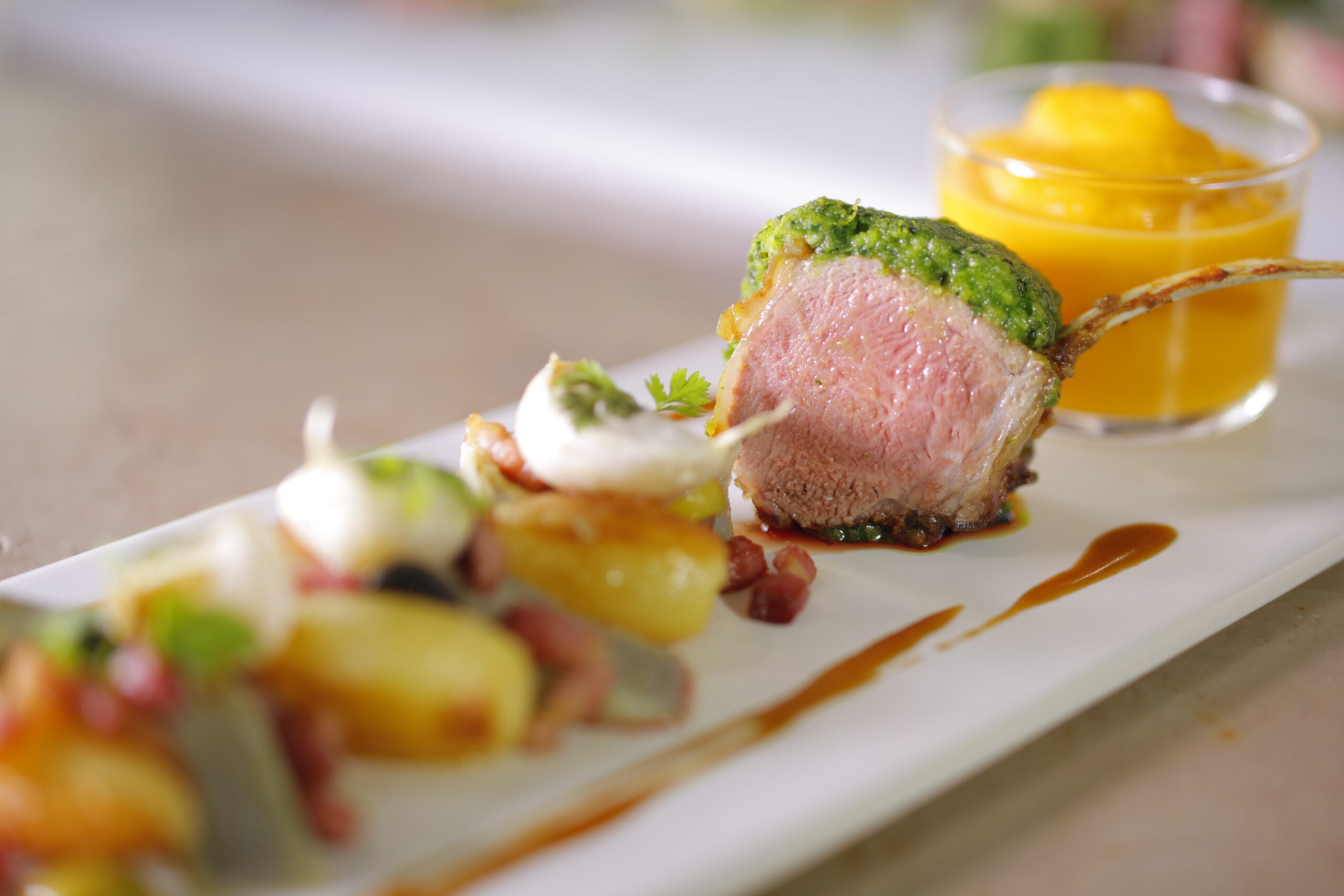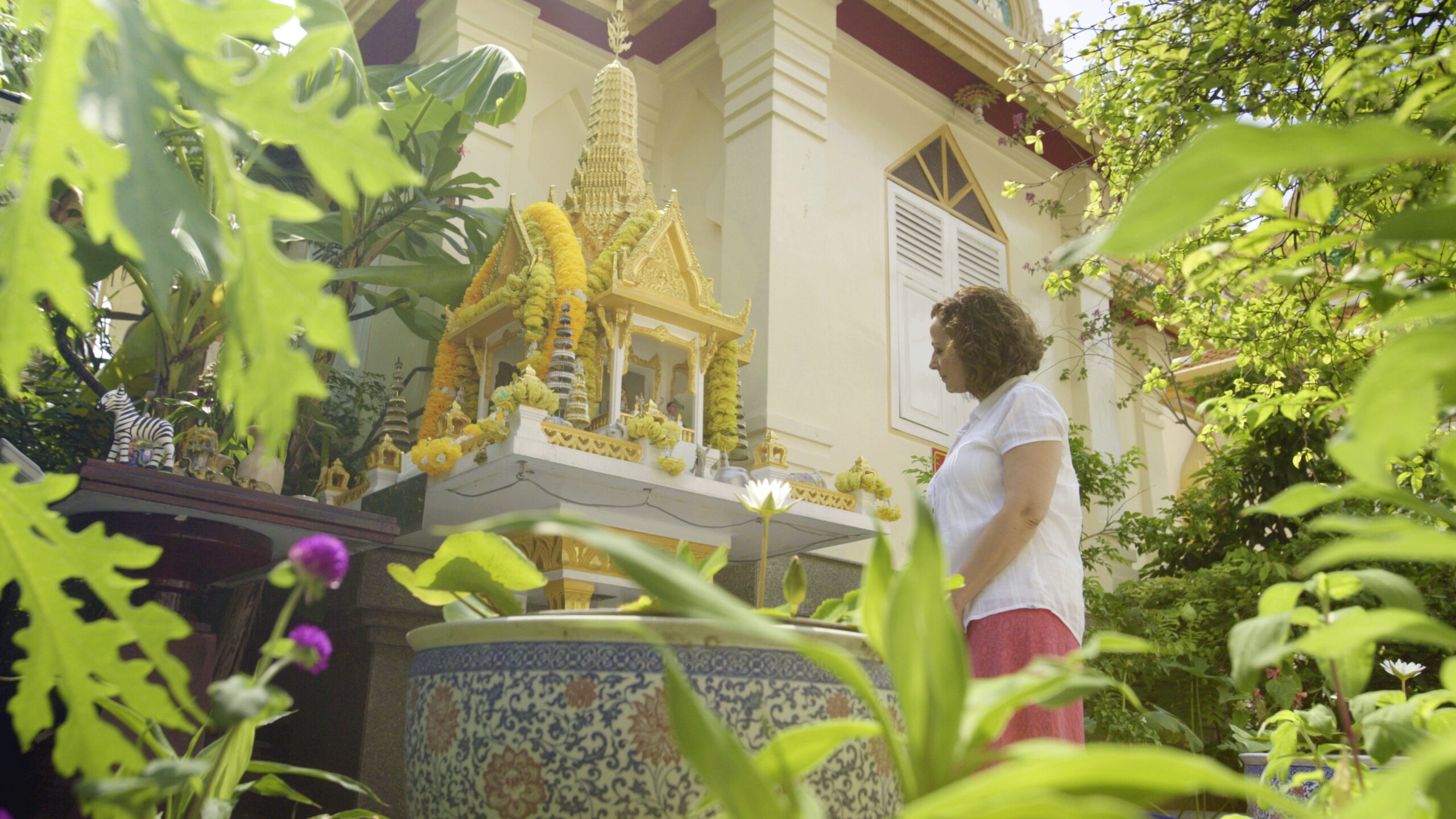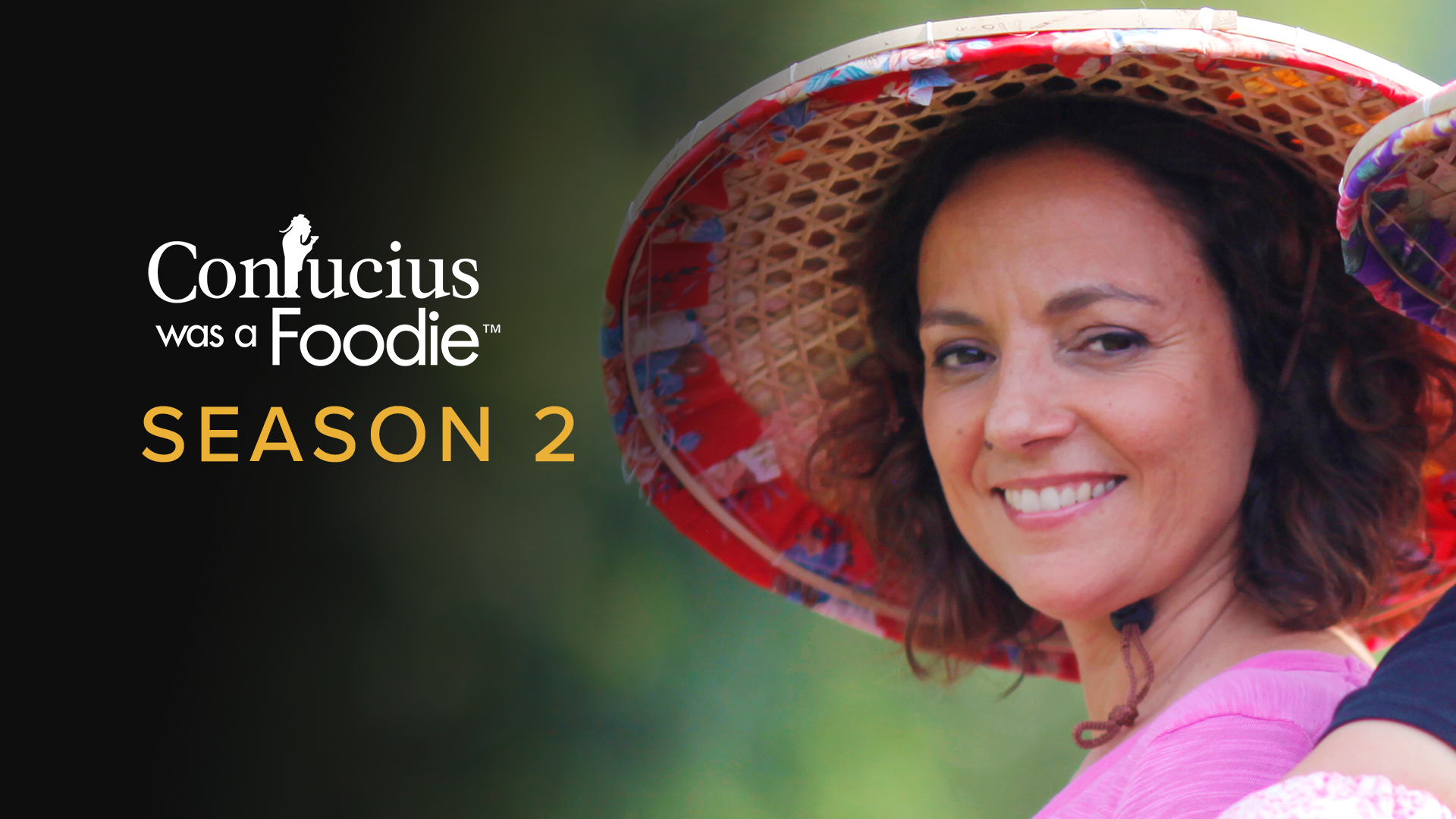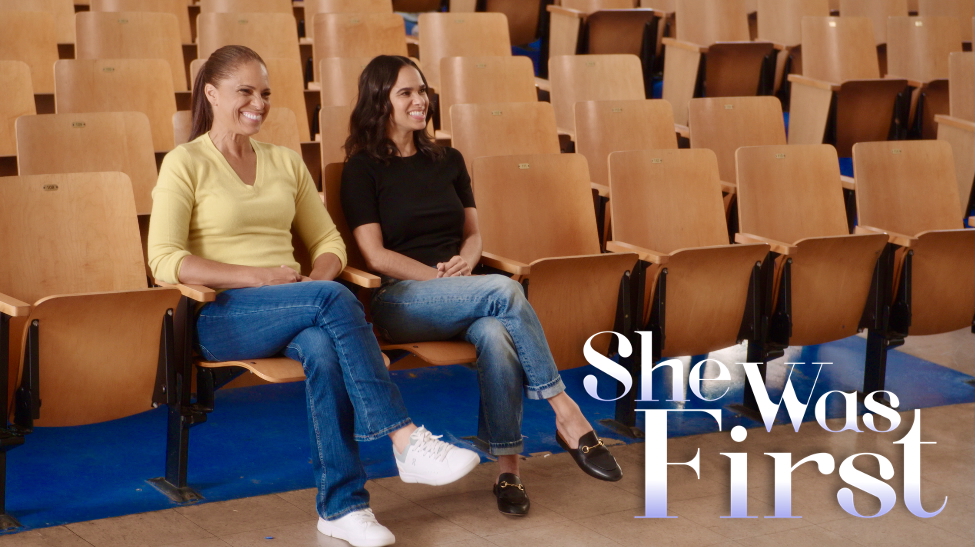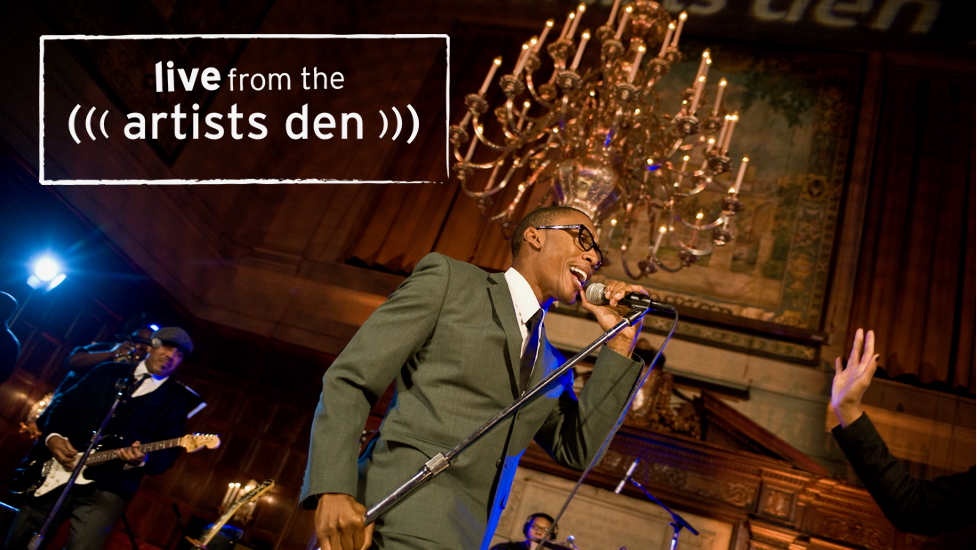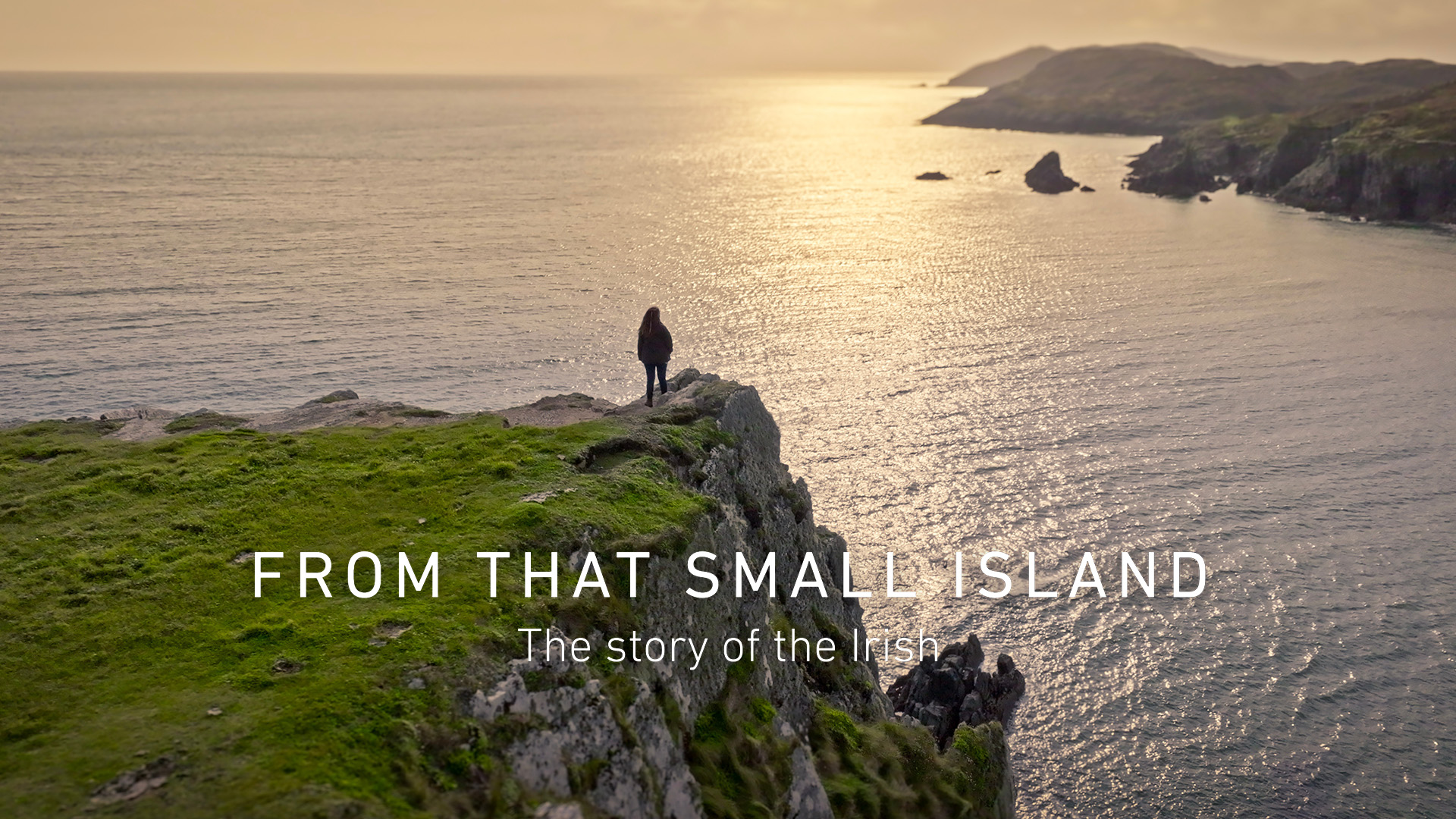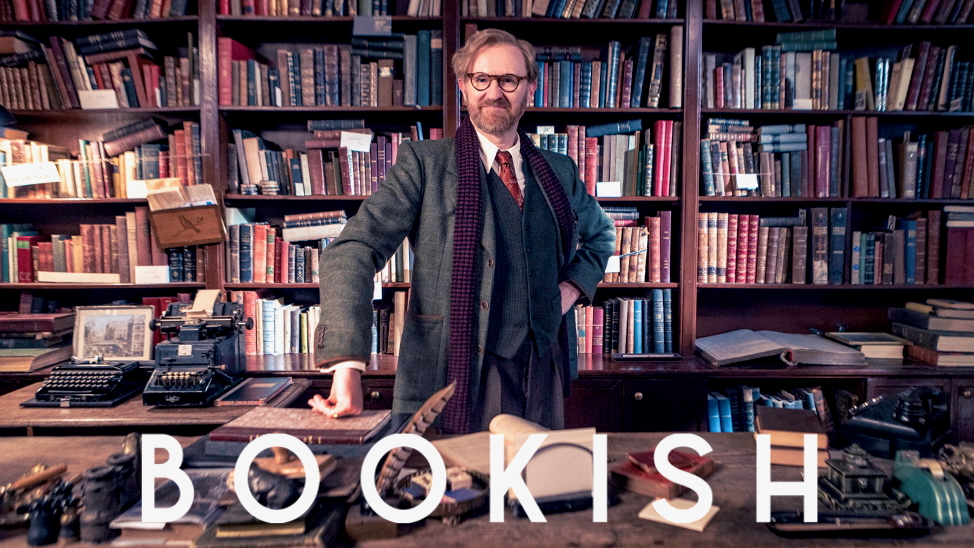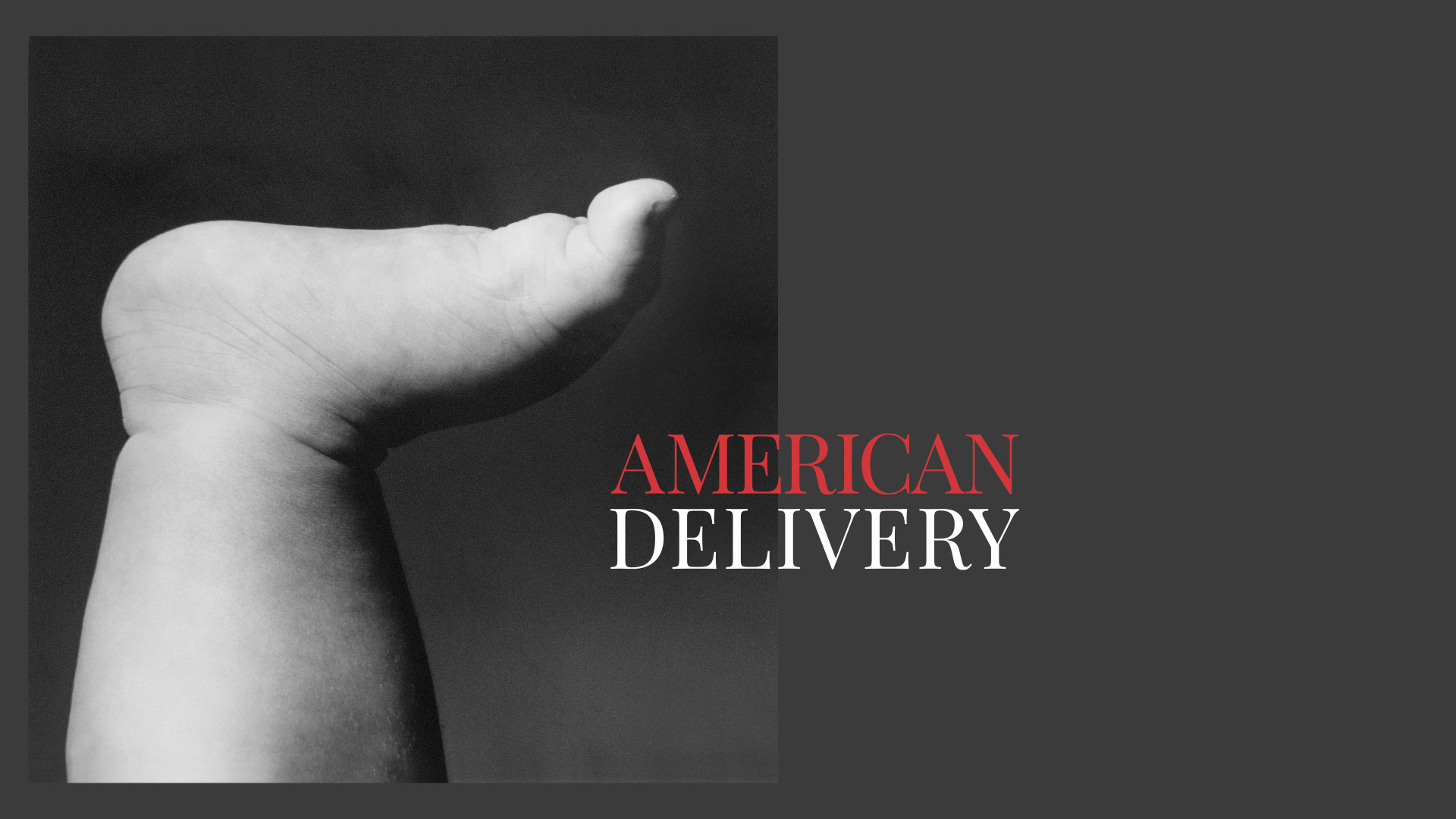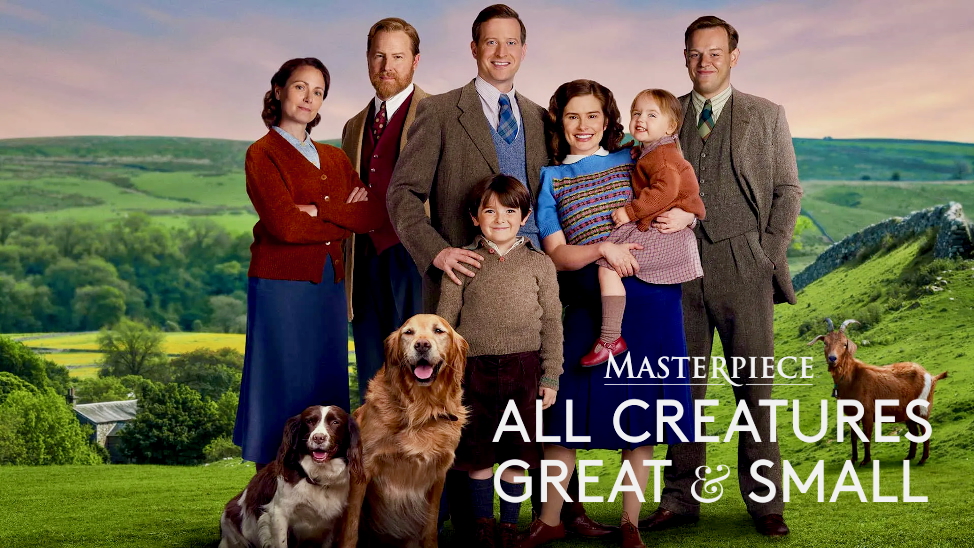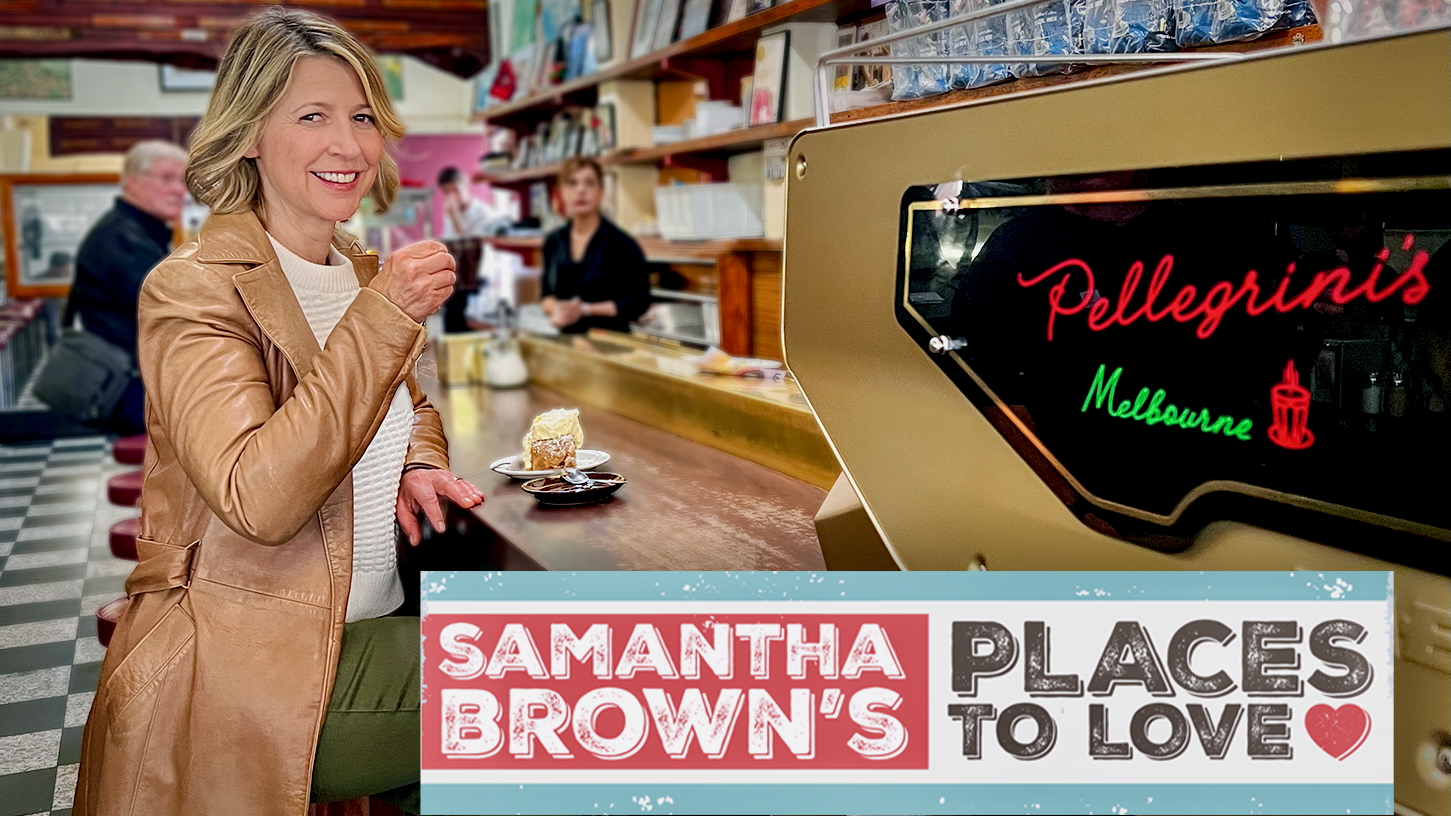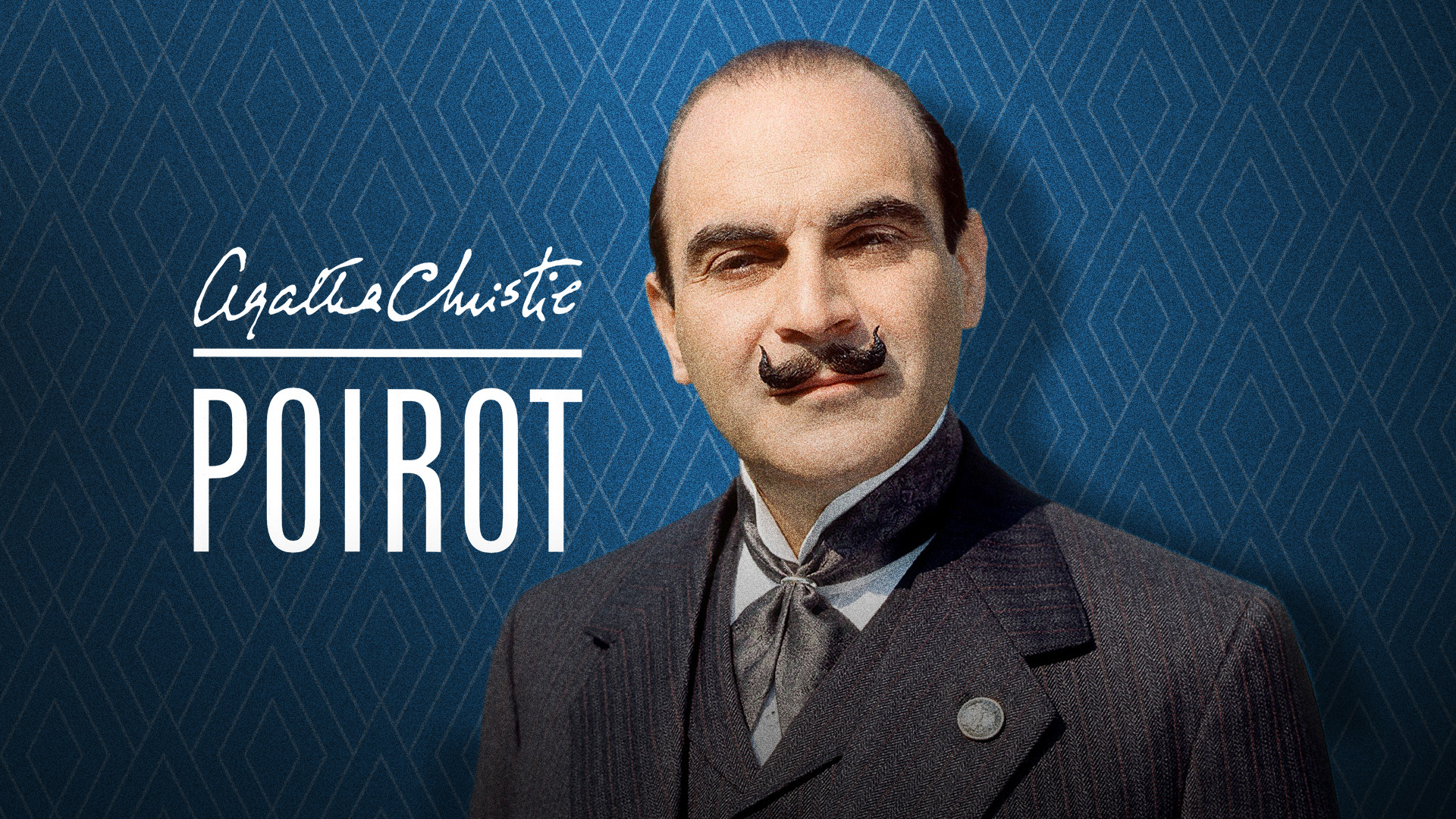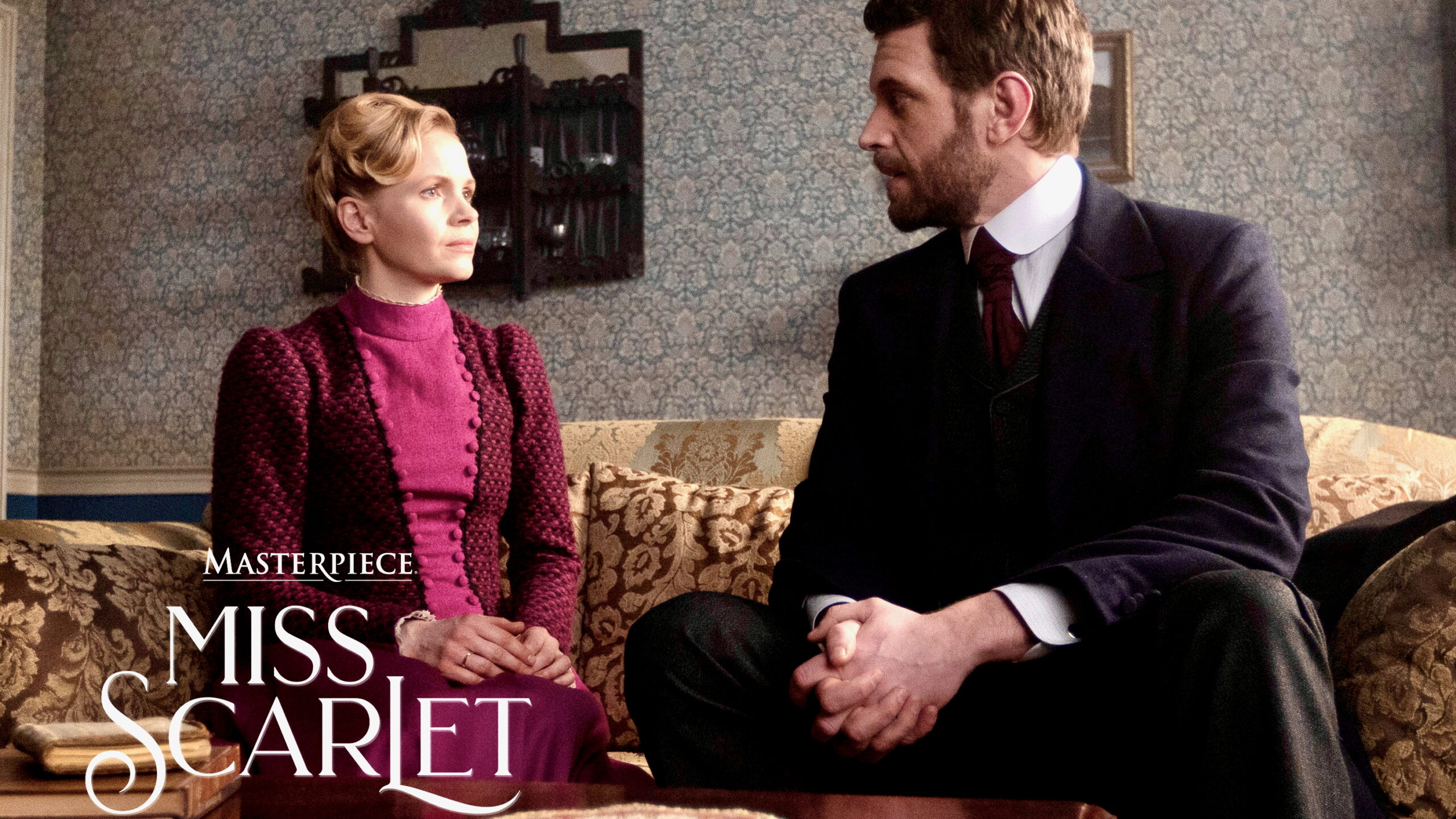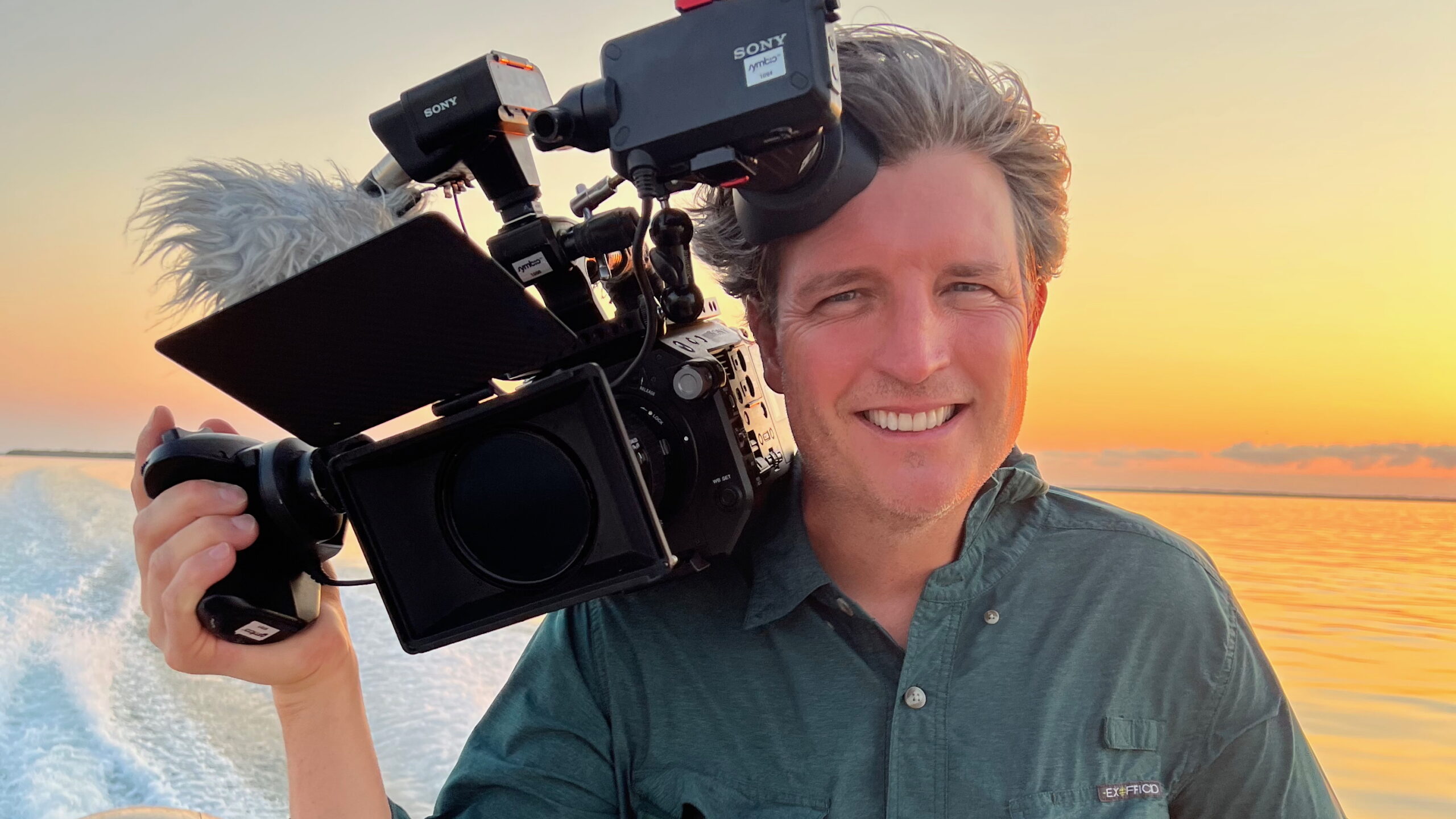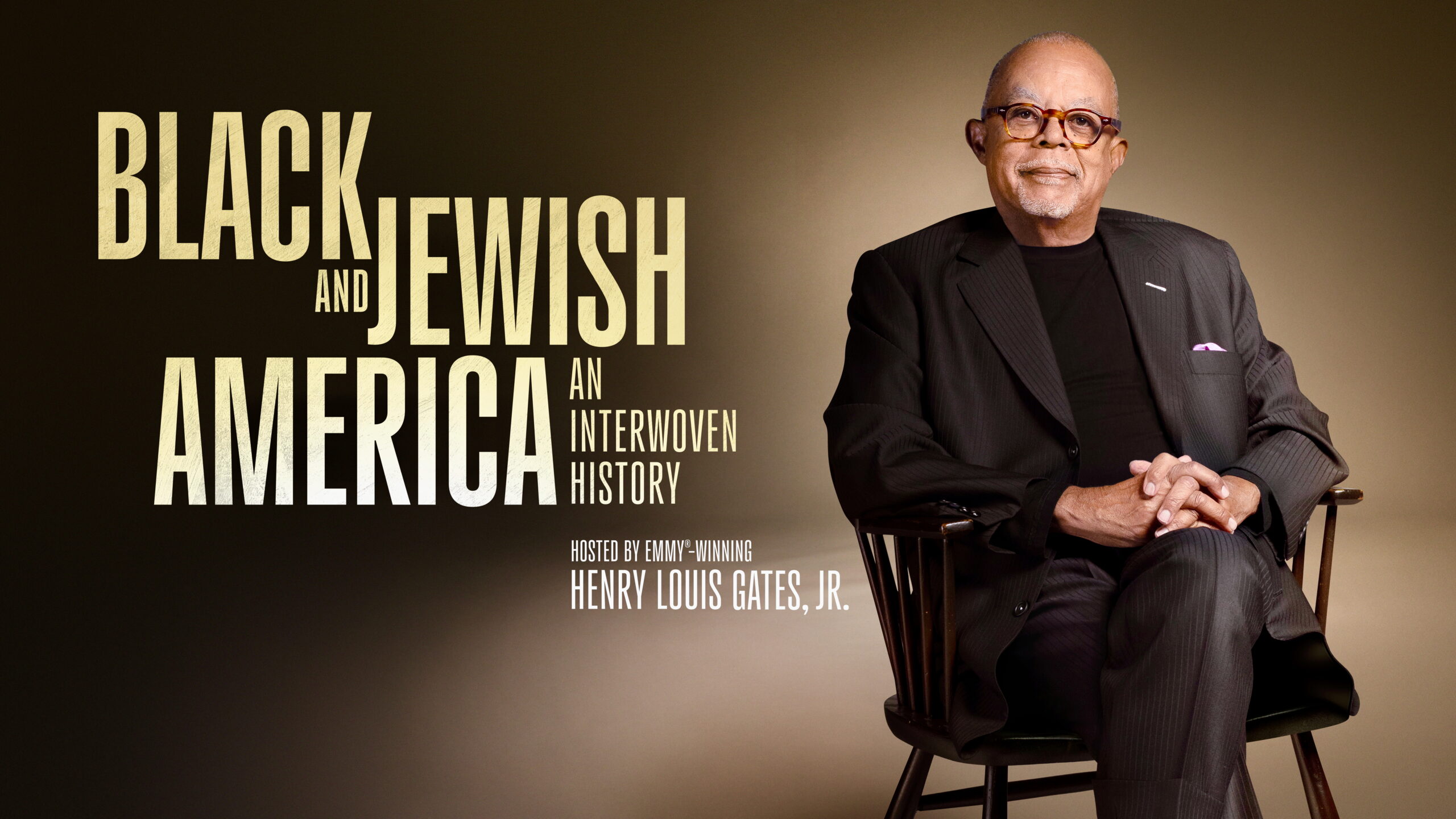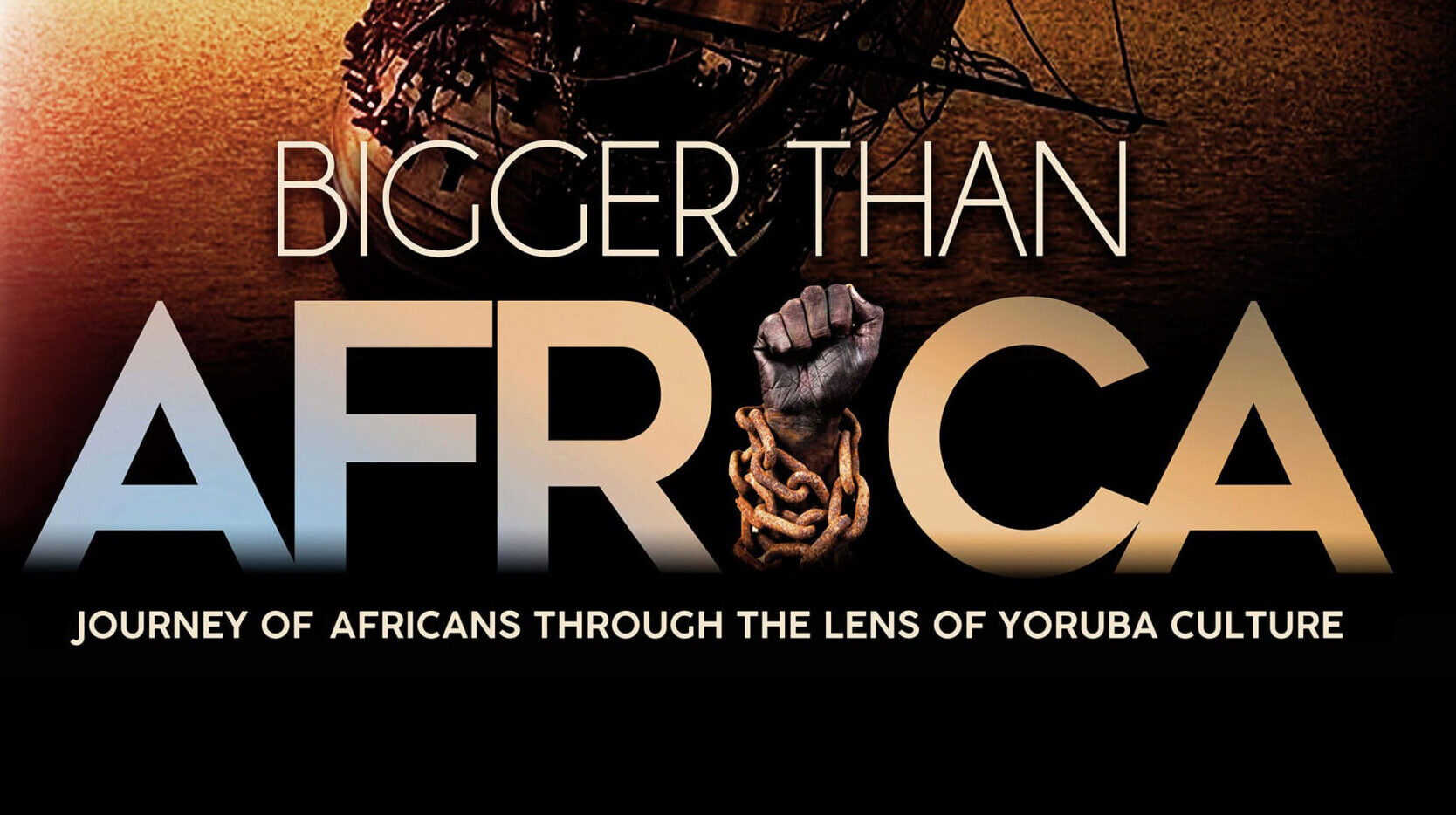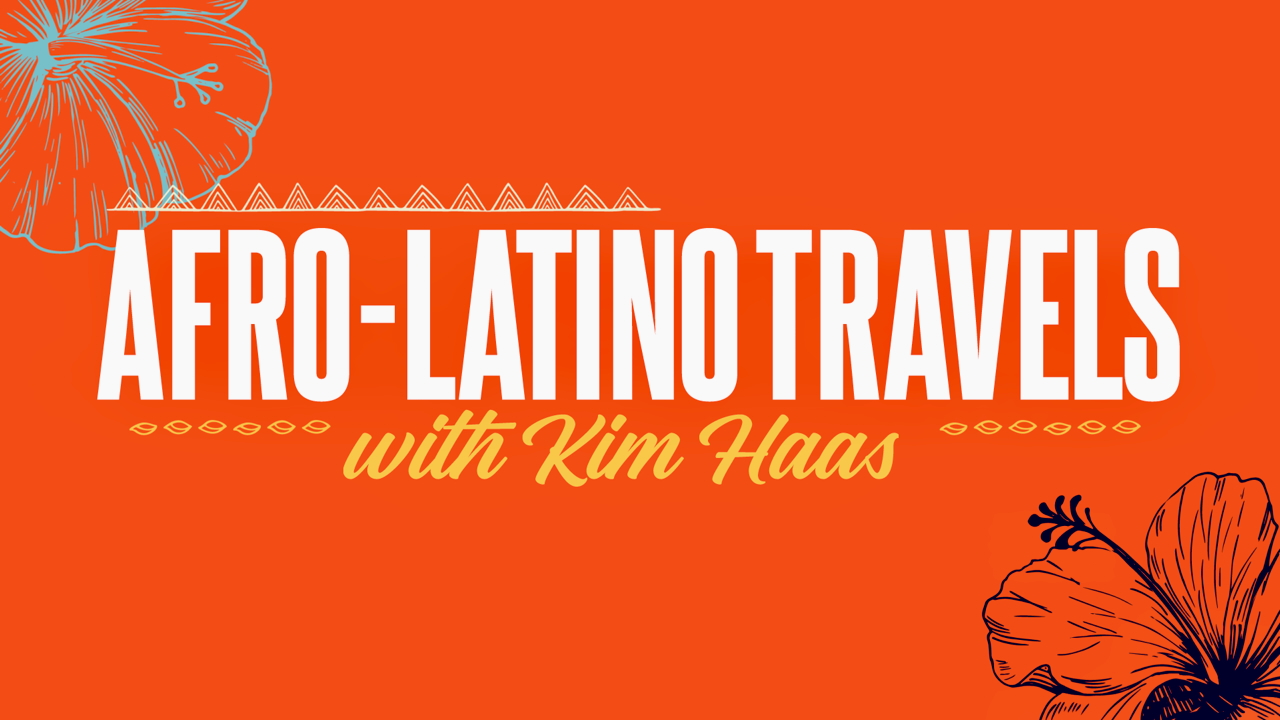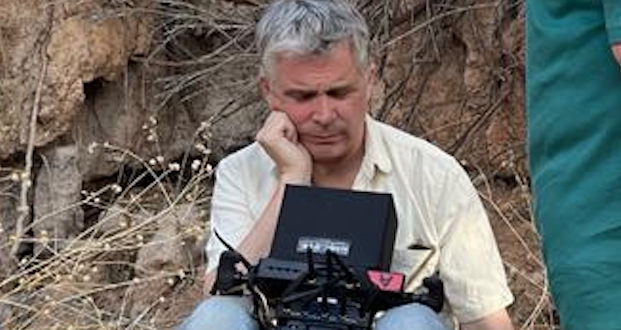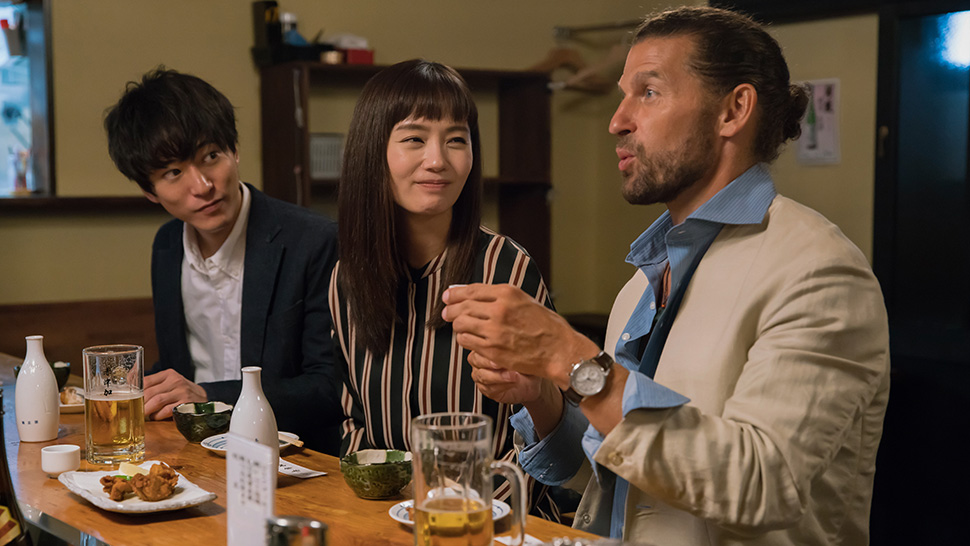Confucius Was a Foodie offers an exceptional blend of food and travel, taking viewers on a global journey that delves into the rich historical roots and far-reaching influences of Chinese cuisine. Airing on KLCS Public Media, this series is a must-watch for culinary enthusiasts. We had the pleasure of talking with the charismatic host, Christine Cushing, and couldn’t resist the opportunity to ask co-creator and producer, Jason Loftus—who’s been immersed in documentary filmmaking—whether we can expect a new season that continues this culinary exploration.
Jason, this is my favorite food show on PBS; it’s so beautifully done. What is the theme and intended aim of this show?
The theme of this, the aim of it, is to really to widen our understanding and appreciation for a cuisine that has a lot more depth to it than most people in the West really would recognize, and, has had a really astounding influence and interconnection with cuisines around the world. That’s what we were really fascinated by, and it’s a story we wanted to share with viewers.
This is such a unique show in how it is shot all over the globe to connect each episode’s theme. How did you come up with this idea for a show?
We have a really interesting mix in the production team here, and a few of us were talking because there was a culinary competition that was taking place. The finals were being held in New York; it was a celebration of the different disciplines of Chinese cuisine. We thought that was very interesting because first off, people always think of Chinese cuisine as being one thing, or perhaps they’re familiar with just the Sichuan cuisine, or the Cantonese cuisine, but don’t realize there’s so much more to it. So the competition was different cuisines within that. And we were finding that in Toronto where we were, a number of restaurants were finalists, or winners, on that competition. And we thought it was really interesting to see that there was world-class Chinese cuisine in our own locality. We started looking more into it and we really liked this idea of exploring the different elements of Chinese cuisine and taking a deeper look. From that, it led to this idea of exploring Chinese cuisine in more depth, but also its migrations, and how that was interwoven with history and culture, and what happened in North America, the early presence of the Chinese and the various different cuisines that came along through the different waves of immigration. I thought it was such an interesting look, it gives us an understanding, both of another culture, as well as its cuisine, and then causes us to look at some of our own cuisines, because there’s a really strong influence from Chinese cuisine in Western cuisines as well.
Before you created this show, had you produced food or travel shows? What was your path to becoming a producer of a docuseries?
Personally, I had worked in documentaries, a little bit in interactive media, also in animation, so I had this mixed background. But our showrunner Theresa Kowall-Shipp, she’s very much in the food space and she had produced with Christine Cushing; [Christina] had a show here on Food Network Canada for a number of years and Theresa was also the showrunner for and producer. So that was just an interesting connection.
We had connected with Theresa, we were talking about this idea. What I liked is that when we brought Christine into the picture as a host, it wasn’t just that she’s the ideal host; it helped to set the show because Christine is so naturally curious and she’s very international. Born in Athens, Greece, established in Canada and she’s very genuinely curious. So this was perfect because we didn’t want to be just telling people things, we wanted it to be a journey of discovery. Christine is amazing because you don’t have to prepare her in advance, you just send her off; she’s really intelligent, she asks great questions. She’s not pretentious, she’s very authentic on-camera discovering these things; that allowed the audience to feel at ease as well. They’re in her shoes, they don’t need to know all these things, and they’re just going on this journey of discovery with her.
What was the path for this show to get on PBS?
We established a relationship first with our local PBS affiliate in Buffalo, New York, WNED; a large part of their audience is actually north of the border here in Toronto and the greater Toronto area. We established a relationship with Kathryn Larsen there and she loved the show and so then she became a champion for the show through APT, American Public television, which helped to bring it to the wider PBS audience nationally. I think in the end it was the mid 90s, a lot of the PBS stations picked it up. We found this really huge resonance, which was wonderful.
In many interviews with PBS chefs, or with travel hosts, I’m told finding sponsors is often the most difficult part of making the program. Was it hard to find sponsors for such an ambition one-hour show?
For sure. The financing for this one didn’t rely exclusively or heavily on sponsors. We were fortunate that we sold licenses to National Geographic Asia, through a lot of countries. Obviously our partnership with PBS was central, in terms of getting the eyeballs and just connecting with the right audience that we really wanted for this series. But the show ended up playing in over 100 territories internationally, so that was really helpful in making it possible, because it was an ambitious project; covering all these different countries where we were shooting. And the support, initially, with partners in Canada that helped to get the thing off the ground. We had an ethnic multi-language channel that helped to get it into the Chinese communities here in Canada, and then also the different funding supports and tax credits make this kind of production possible.
How did you come up with each theme, what was your goal in how the series would be shaped and formed?
That sort of evolved with time. The first effort was to explore the different cuisines. We had an initial version of the episodes. We had them originally produced as 45-minute episodes and that’s what they aired on NatGeo, and then we adapted them for the longer format, because PBS doesn’t have the large advertising blocks. We’ve heard from other producers, if they produced their show for other channels, that could be a cause of consternation, because, “Oh no, what are we going to do to pad this?” But for us, it was wonderful news because there’s so much great things that we had cut out, it can get a bit dense. So it was lovely to let the show breathe; to show some of the beautiful footage we had shot all around the world. It started, first, with this exploration of the different cuisines, that was the original format of the first season. And then as we started going out from there, we looked at different elements, and then we repackaged and reorganized it when we brought it to PBS, because we had that opportunity to more fully flesh out [each show]. So you started with something very logical, like – “Let’s go one cuisine at a time,” and then we adapted it to something that we felt was a little more organic when we brought it to PBS.
How did you decide who would host this show? When I first saw it, I assumed Christine knew Chinese, and that was the reason she was the host, but when interviewing her, I found out she didn’t.
That’s right, we had really good real-time translation, so credit to the production crew. Kaman Pun (production manager) was in her ear a lot of the time. And Kaman spoke Mandarin, Cantonese and English. It was funny because sometimes there was also this instinctive understanding that she had. I guess there’s the shared language of food, so she was kind of a step ahead all the time, even with the translation, but we had that in her ear. We did look at other hosts when we were looking at this exploration of Chinese cuisine, but, really, it was not a difficult or long conversation, because Christine just seemed to be really perfect. And, it was what I was getting at with the curiosity that she has that is so genuine. I mean, from another perspective, the show is so ambitious, but the benefit is we didn’t have to share and prepare a lot of things for her. She was just like, “What are we doing today, where are we going?” Because she’s confident in her own knowledge of cuisine, she’s comfortable in an environment where she’s learning new things; she doesn’t have to pretend to know something she doesn’t. Basically, she’s really discovering along with the viewer. She has this warmth as well. She connects with people, has a real respect for people. Perhaps it’s also her multinational background. She has a real respect for people who’ve mastered another cuisine that she’s not familiar with. We had a few master chefs that we connected her with from Chinese cuisine; these are not well-known celebrity chefs, but these are people who are really masters in their art in some of the different disciplines in Chinese cuisine. There was a real rapport that she built with them, so even though they were working through translators, you can cut out the parts where’s there’s a lot of back and forth in the translation. There’s this real warmth that’s there and it’s very genuine. And I think that really showed up on screen.
My favorite episode about tea was on KLCS recently, although I love the noodle episode too. I could watch more episodes on tea; it’s fascinating to me. Do you have a favorite episode?
Oh, those are good episodes. I love when they were Taiwan, and they had the noodles, and just seeing what goes into it. It’s a real art; and the great thing about her participating and learning, is that while she’s doing that, you’re thinking, “How did people figure this out? (laughs) It’s quite a process; it was really interesting and such remote locations. On that shoot, we lost a drone in the forest there. They were really up in the middle nowhere. It was quite something. I enjoyed even the travel, they visited San Francisco and also the west coast of Canada, looking at the intertwining of the early Chinese immigration. The contributions that they made and the difficulties they went through, and how that was interwoven with the evolution and influence of the cuisine; I thought that was fascinating as well.
Even that scene where she got off the train, got the takeout, and rushed back to try it.
Yeah, yeah, all of our experiences is that wherever you go, there’s a Chinese restaurant, right? And there’s a story behind that too. It’s fascinating to see the nature of Cantonese cuisine, in the sense that it really embraced local ingredients, and that kind of adaptive nature that it has was part of why it became so widespread. And why it’s different than you would find back home.
Did you go on location with any of these shows?
I didn’t travel with the crew for the most part. I participated in some stuff that was local or I was around when they were shooting, and we would do team celebrations. But I was getting the dailies and I was getting the updates from the team. I don’t know if I have the energy to keep up with these people to be honest. We had the budget and scope that we had, so this was not like from above, “You guys have to do this,” but Theresa didn’t book a lot of off days. They were running for weeks at a time. And they were so hardcore because they were just so into it. And this team, to this day, there’s a bond that was formed – they’re reminiscing about getting stuck in a typhoon in Taiwan, and sleeping at the airport with no blankets. And they just kept going, next day, next day, next day. It was a riot. So, I think that comes across on-screen. If people are really enjoying the experience and it was something memorable for them, it’s really hard to hide. And of course, if the opposite were true, you would feel that as well.
I love how the show looks and feels and how it takes me on a journey. Are there plans for a new season?
We do have a fleshed out future season and we were hopeful that we would be able to dive into it. Covid interrupted some of the momentum we had. International travel was one of the most difficult things to do at that time. We still do have additional episodes shot that have aired in some formats in other territories that we haven’t brought to PBS, as well. We’re in a bit of an in-between on that, and we love that there’s still an audience for the show because I think that helps to make our case to continue on this journey. It is one of those things where you can’t summarize Chinese cuisine and its influence in the world in a one-hour documentary; it’s got so many different angles to it.
Have you thought of similar shows in this vein?
Yes, we have a few in the development pipeline that are some shows with Christine and other shows with other members of the team that are in this vein. We love that sort of intersection of travel, history and culture. I think that visually it’s wonderful to be able to go to different locations; you transport an audience. And cuisines is something that really brings people together. So when you’re not at the table, you feel like you could see how food brings people together. We love those elements of it, and there’s so many stories that are intertwined in the cuisine.
I loved her and the travel so much, as a viewer, I would have been fine without the dinner at the end, as it was such a gorgeously shot travel and food show. I thought it could stand on its own; you guys gave us a lot in one hour.
For sure, I think that’s why it was easy to fill the full hour time shots, there were so many beauty shots that we could not fit in to half an hour.
This show and many food shows on PBS are a quiet escape from daily life. What are some of the viewer comments on this show? Are others also hoping for it to come back?
For sure. We continue to receive really warm comments. We have the show, people acquire video on-demand because sometimes they’ll see the episode here or there and they miss the rest of it and we get that outreach. It’s amazing how it’s connecting people all over the place. When we were shooting subsequent seasons in Asia, the first seasons had aired over there, Christine would get stopped on the streets by people who had recognizes her. So it was something that resonated widely. I think that’s been one of the most interesting and heartwarming elements of it. It cuts across all kinds of difference audiences. We found people all over the world who really resonated with this story.
What is your average day like, now?
It’s split in many different directions. We’re still heavily in the documentary space. Since Eternal Spring took off – that film has played in it’s come up in its 50th country; it’s screened all over the world – 27 different countries. That kept me busy for two years-plus. Part of our creativity comes from the combination of curiosity and, I think, a comfort with working across different mediums. Even with Confucius was a Foodie, we produced simultaneously a VR (virtual reality) experience. We were very fortunate; it was also nominated for a Canadian Screen Award. VR was wonderful for being able to transport people, it really immerses you and brings into another place and time. We’re working right now in narrative games, we have two new VR experiences as well. So, our days are split between various projects across documentary, animation and interactive media, and I find that really stimulating, and I find that when you work across mediums, it makes you a stronger storyteller in any one of them, because you gain a stronger appreciation for the tools in each of them and, also, sometimes I think we’re too siloed. There’s actually things we can learn from creators in others spaces, in terms of what they do in video games, or what they do in interactive media, or what they do in animation. And of course we brought simple elements into the series, to tell the origin of tea, for example. It was nice, we have that in-house in the studio to be able to do that.
Have you been to L.A. and if so, what places do you like to dine here?
There’s a couple restaurants that were in this series: Qing Dao Bread Food in Monterey Park and Szechuan Impression is another one. When I’ve been through L.A., it’s usually been in the midst of an awards run, where I’m eating whatever’s in front of me (laughs) at a cocktail party.
I ask this of every PBS chef, but do you cook and if so, what is your go-to healthy dish to make at home? Preferably Chinese, since that’s your show’s focus.
I’m really fortunate that my mother-in-law has been staying with us for quite a number of years and she helped us early on when our boys were young. So my boys actually didn’t speak English until they were two-and-a-half, so that forced me to immerse myself in Mandarin. She’s from northeast China, so the cuisine we’re most familiar here is the northern Chinese cuisine, which you see featured in some of the episodes. Interestingly it has similarities to the Eastern European cuisine that I would have seen from my grandmother; there’s breads, so, lots of dumplings, lots of bao zi. Those are really home cooking for me. We have a garden outside and fresh vegetables and dumplings.
Anything you’d like to add?
Everyone on this team was great! The powerhouse behind it all is this energizer bunny Theresa Kowall-Shipp. She’s just a force, and so much of her energy and passion is what you see on-screen.
Confucius was a Foodie airs Sunday afternoons at 2 PM on KLCS Public Media; visit our website for more details and a full schedule.
Stay up to date with the show and Christina by visiting the show’s website: www.confuciuswasafoodie.com and on their social media accounts: Facebook (@confuciusfoodie), Instagram (@confuciusfoodie), or checkout their YouTube channel (@ConfuciusWasaFoodie). Follow Jason on his socials to learn more about his many projects: Instagram (@jason.loftus), Twitter/X (@jasonloftus)
This interview has been edited for length and clarity, you can read the full version of this interview on our website: KLCS.org
Photo credit for all images: Lofty Sky Entertainment

